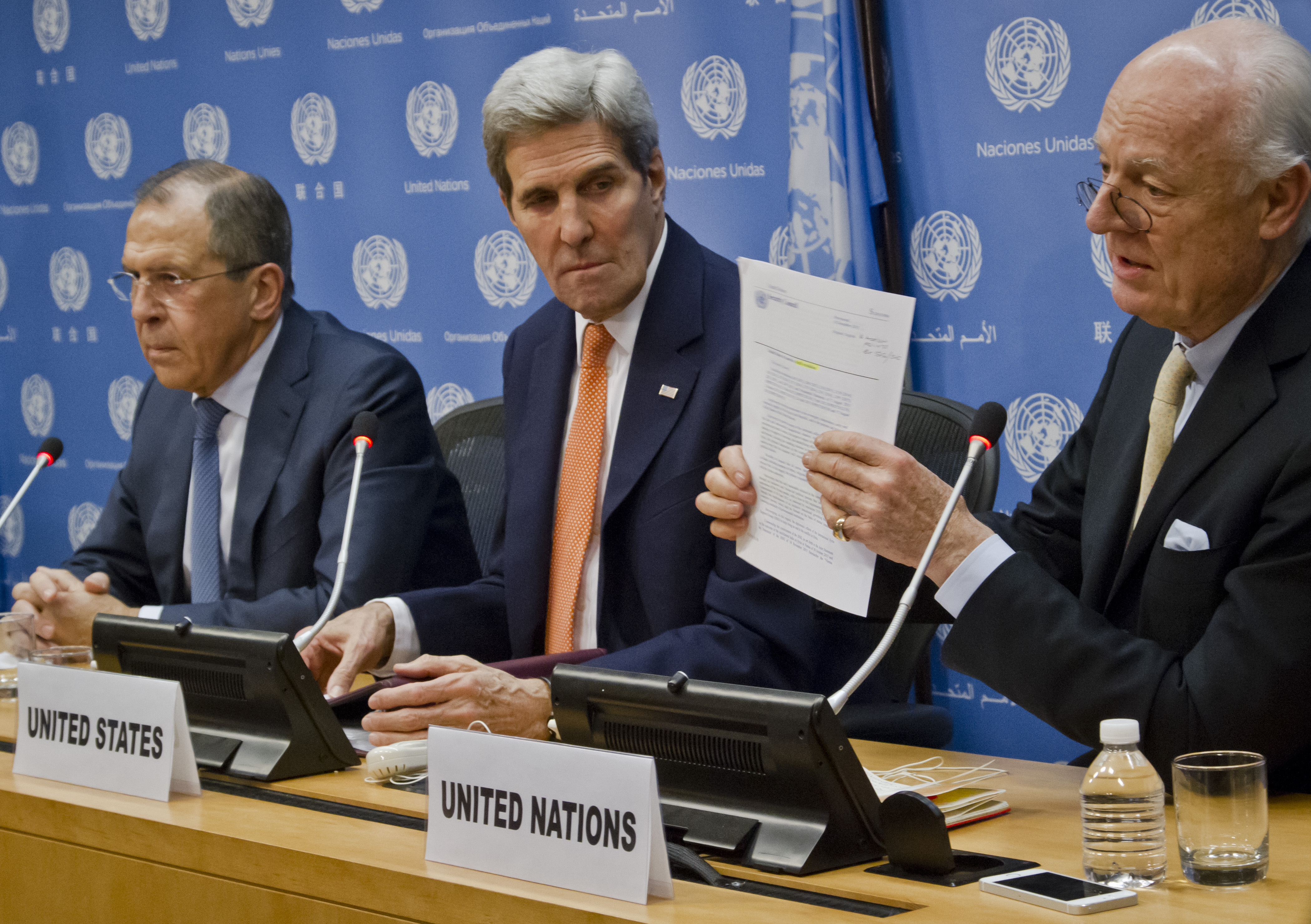WSJ: U.S. Held Secret Communication With Syria

U.S. officials were in secret communication with members of President Bashar al-Assad’s government in 2011 as the civil war got under way, to try to limit violence in Syria, and explored ways to encourage a military coup, the Wall Street Journal reported on Thursday.
American intelligence officials identified army officers belonging to Assad’s minority Alawite sect who could lead a coup, but they found few weak spots to exploit, the Journal said, citing interviews with more than two dozen people, including current and former U.S. officials.
The moves were made as Assad’s government began cracking down on protests and soldiers started leaving the army, the Journal said.
“The White House’s policy in 2011 was to get to the point of a transition in Syria by finding cracks in the regime and offering incentives for people to abandon Assad,” a former senior administration official was quoted as saying.
The Obama administration shifted away from trying to influence Assad’s government and toward supporting Syrian rebels in 2012, the newspaper reported.
Senior officials from the United States and Syria spoke directly to each other or sent messages through third parties, including Syrian allies Russia and Iran, the newspaper said.
Deputy Secretary of State William Burns made two phone calls to Syrian foreign minister Walid al-Moallem to warn the Assad regime against using chemical weapons on a large scale, U.S. officials told the newspaper. Burns retired last year.
One senior U.S. official said the secret communications were unlike those held with Cuba or Iran, in which the United States thought it could quietly resolve issues, but were more focused on specifics.
“We have had times where we’ve said: ‘You could create a better environment for cease-fires if you stop dropping barrel bombs,'” a senior U.S. official told the Journal.
To Read The Full Story
Are you already a subscriber?
Click "Sign In" to log in!

Become a Web Subscriber
Click “Subscribe” below to begin the process of becoming a new subscriber.

Become a Print + Web Subscriber
Click “Subscribe” below to begin the process of becoming a new subscriber.

Renew Print + Web Subscription
Click “Renew Subscription” below to begin the process of renewing your subscription.






